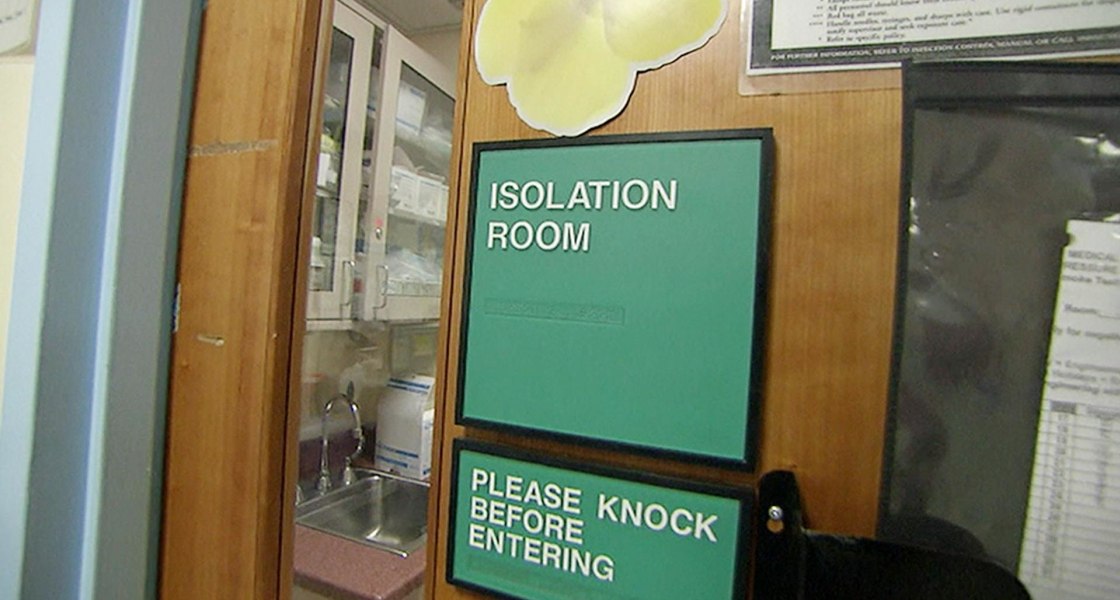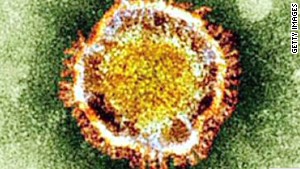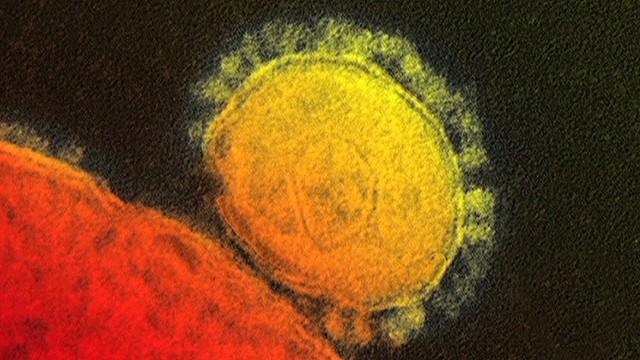 TODAY
TODAY Second MERS Case Shows Hospitals Are Ground Zero for MERS
The
patient started feeling ill as he sat on a packed flight from Jeddah to
London. Things didn’t get any better after he boarded another flight to
Boston, or a third flight to Atlanta, or even as he took one last
miserable leg to Orlando.
If he’d been watching the news, he should have known it was at least possible that he had MERS, the mysterious new Middle
East respiratory virus. It’s been spreading in Saudi Arabia and has
infected more than 570 people globally, killing 171 of them. The biggest
risk factor is being a health care worker, like the patient.
Still,
he boarded multiple flights and came into an Orlando hospital without
warning he had respiratory symptoms and had come from Saudi Arabia. He
spent hours in a public emergency room, potentially exposing other
patients to his infection.
Showing
up in an emergency department without warning results in just what has
happened in Orlando — 20 health care workers in quarantine for two
weeks. Patients who were in the waiting room are being tracked down just
to be sure they know what to do if they develop cough or fever.
Two
workers who helped care for him did develop respiratory symptoms,
causing a great deal of concern, but they have tested negative for MERS.
The case shows just how important it is to control infections at hospitals.
"We feel like getting infection control is issue number one," the World Health Organization's Dr. Keiji Fukuda told a news conference on Wednesday.
“If you get sick within 14 days of being in the Arabian Peninsula, call a doctor and tell the doctor where you traveled."
There’s
little excuse for not knowing about the possibility of infection now —
the U.S. Centers for Disease Control and Prevention is posting signs at
major airports, warning of the symptoms. “If you get sick within 14 days
of being in the Arabian Peninsula, call a doctor and tell the doctor
where you traveled,” the signs advise.
And now the World Health Organization, has too, even as it stopped short of declaring MERS a global health emergency.
CDC
has repeated this advice at regular intervals, most recently after an
Indiana man who’d been working in a Saudi hospital became the first U.S.
MERS patient. He doesn’t remember having treated anyone with MERS but
did work at a hospital in Riyadh with MERS cases.
The second patient also worked at a hospital where MERS was being treated, this one in Jeddah, his doctors said.
The
44-year-old health care worker laid low with relatives in the Orlando
area for a few days, finally feeling bad enough to go to the emergency
room at Dr. P. Phillips Hospital. He was admitted May 9, and tests
confirmed on Monday he was the second patient to show up in the United States with MERS.
But
the professionals who treated him on Friday night already suspected he
might have MERS. Anyone coming from the Arabian peninsula with
respiratory symptoms should be considered a potential case, CDC says.
That means extreme hygiene measures, including an isolation room.
"I
have to wear a special mask called an N-95 (respirator). I have to wear
a gown and gloves. Once we get out of the room we dispose of
everything," said Dr. Antonio Crespo, infectious disease specialist and
chief quality officer for the P. Phillips Hospital.
.....
Press Release
CDC announces second imported case of Middle East Respiratory Syndrome (MERS) in the United States
MERS case in traveler from Saudi Arabia hospitalized in Florida
A
second imported case of Middle East Respiratory Syndrome (MERS) was
confirmed late night on May 11 in a traveler to the United States. This
patient is a healthcare worker who resides and works in Saudi Arabia.
This case is unlinked to the first U.S. imported case of MERS reported
May 2 in Indiana. Despite this second imported case, the risk to the
U.S. general public from MERS still remains very low. Both imported MERS
cases are healthcare workers who recently worked in and traveled from
Saudi Arabia.“This second confirmed case of MERS in a person who worked in health care from an area of risk is not surprising,” said CDC Director Tom Frieden, M.D., M.P.H. “To continue to strengthen our own health security, we need to increase our global ability to support other countries to help them find and stop threats such as MERS promptly, and to prevent them whenever possible.”
On May 1, the patient traveled by plane from Jeddah, Saudi Arabia to London, England, to Boston, Massachusetts, to Atlanta, Georgia, and to Orlando, Florida. The patient reported feeling unwell during the flight from Jeddah to London and continued to feel unwell on subsequent flights with reported symptoms that include fever, chills and a slight cough. On May 9, the patient went to the emergency department of a hospital in Florida and was admitted the same day. The patient is isolated, being well cared for, and is currently doing well.
Because of the patient’s symptoms and travel history, the Florida Department of Health officials tested the patient for MERS Coronavirus (MERS-CoV), the virus that causes MERS. Those tests were positive, and CDC confirmed MERS-CoV infection in the patient late last night.
“Given the dramatic increase in MERS cases in the Arabian Peninsula, we expected and are prepared for additional imported cases,” said Dr. Anne Schuchat, assistant surgeon general and director of CDC’s National Center for Immunizations and Respiratory Diseases. “The reason for this increase in cases is not yet known, but public health investigations are ongoing, and we are pleased to have a team in Saudi Arabia supporting some of those efforts.”
CDC and Florida health officials are not yet sure how the patient became infected with the virus. Exposure may have occurred in Saudi Arabia, where outbreaks of MERS-CoV infection are occurring. Officials also do not know at this time exactly how many people had close contact with the patient.
Federal, state, and local health officials are taking action to minimize the risk of spread of the virus. The hospital is using standard, contact, and airborne isolation precautions, to avoid exposure to MERS-CoV within the hospital.
As part of the prevention and control measures, officials have begun reaching out to healthcare professionals, family members, and others who had close contact with the patient to provide guidance about monitoring their health and recommending they see a healthcare provider for an evaluation. Public health officials are working with airlines to identify and notify U.S. travelers who may have been in close contact with the patient on any of the flights.
“The rapid identification and response to this case are a reflection of all of the work that CDC and partners have done over the past two years to prepare for MERS entering the United States,” said Schuchat.
All reported cases of MERS have been linked to countries in the Arabian Peninsula. In some instances, the virus has spread from person to person through close contact, such as caring for or living with an infected person. However, there is currently no evidence of sustained spread of MERS-CoV in community settings. “The risk to the U.S. general public from MERS still remains very low,” said Schuchat.
While experts do not yet know exactly how this virus is spread, CDC advises Americans to help protect themselves from respiratory illnesses by washing hands often, avoiding close contact with people who are sick, avoiding touching their eyes, nose and/or mouth with unwashed hands, and disinfecting frequently touched surfaces.
At this time, CDC does not recommend anyone change their travel plans. CDC advises people traveling to the Arabian Peninsula who work in a healthcare setting to follow CDC’s recommendations for infection control. Other travelers to the Arabian Peninsula should take general steps to protect their health. Anyone who develops fever and symptoms of respiratory illness, such as cough or shortness of breath, within 14 days after traveling from countries in or near the Arabian Peninsula should call ahead to a doctor and mention their recent travel.
Background
Middle East Respiratory Syndrome Coronavirus (MERS-CoV) is a virus that is new to humans and was first reported in Saudi Arabia in 2012. So far, including this U.S. importation, there have been 538 confirmed cases of MERS in 14 countries. Most of these people developed severe acute respiratory illness, with fever, cough, and shortness of breath; 145 people died. Officials do not know where the virus came from or exactly how it spreads. There is no available vaccine or specific treatment recommended for the virus.
For more information about MERS-CoV, please visit:
- Middle East Respiratory Syndrome: http://www.cdc.gov/coronavirus/mers/index.html
- Frequently Asked MERS Questions and Answers: http://www.cdc.gov/coronavirus/mers/faq.html
- Florida Department of Health
http://www.floridahealth.gov/
.....


 Saudi officials see spike in MERS virus
Saudi officials see spike in MERS virus Health workers infected with coronavirus
Health workers infected with coronavirus  Gupta: MERS outbreak linked to camels
Gupta: MERS outbreak linked to camels Killer coronavirus in the Middle East
Killer coronavirus in the Middle East







